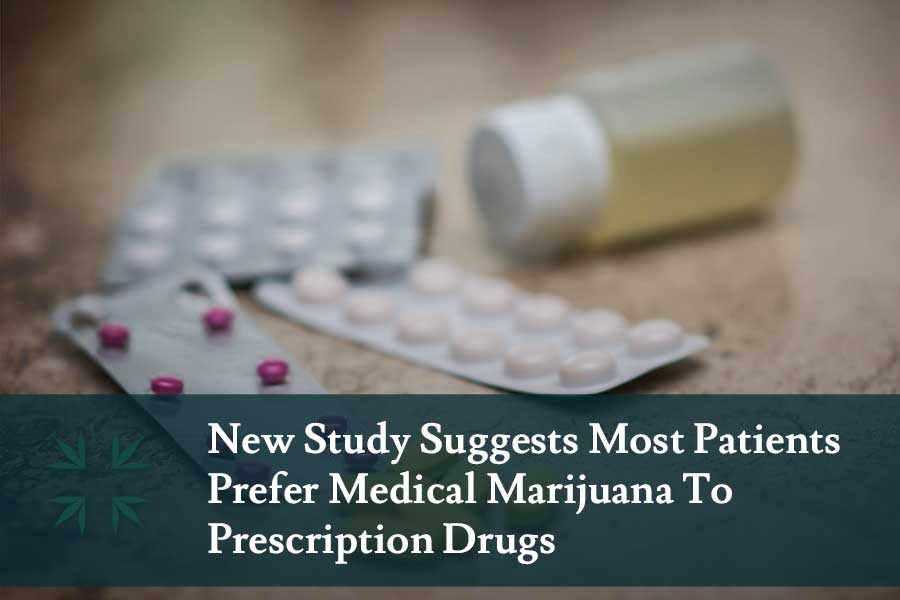In an effort to establish medical marijuana as a legitimate therapeutic alternative to prescription drugs, a couple of researchers from the University of Michigan Institute for Social Research investigated medical cannabis use and its impact on pharmaceutical drug use.
Daniel J. Kruger and Jessica S. Kruger published a report titled “Medicinal Cannabis Users’ Comparisons between Medical Cannabis and Mainstream Medicine” in the Journal of Psychoactive Drugs. Findings suggest that increased medical marijuana access could reduce prescription drug intake.
Medical Marijuana Patients Are Loyal To Cannabis
Researchers went to a pro-cannabis event advocating for decriminalization at the University of Michigan campus to survey medical patients. Of the 450 surveys distributed, 392 were completed. Not surprisingly, 78% of the survey respondents claimed that they used cannabis to treat a medical or health condition.
Participants reported that they used cannabis to treat pain, headaches, anxiety, depression, post-traumatic stress disorder (PTSD), back pain, muscle spasms, and more. Many of these patients had reduced or completely stopped taking prescription drugs after taking cannabis for the same condition.
Prescription Drug Use Goes Down
According to the study, “42% stopped taking a pharmaceutical drug and 38% used less of a pharmaceutical drug” due to their continued cannabis use. Drugs cited include opioid painkillers, benzodiazepines, antidepressants, and non-opioid painkillers. Cannabis users at the pro-cannabis rally agreed that medical cannabis was more effective, safe, widely available and budget-friendly, as well as less addictive than traditional medications. Additionally, users rated marijuana as having fewer side effects than pharmaceuticals.
Doctors Are In The Dark
With medical marijuana’s increased availability, more people are using the plant and its extracts after receiving a recommendation from a licensed physician. Despite marijuana’s resurgence as a sensible treatment option, 30% of survey respondents said they hadn’t informed their healthcare provider that they were using cannabis to treat their health condition.
Because of federal prohibition and hesitance of doctors to prescribe marijuana, patients have come to trust medical cannabis more than mainstream healthcare avenues. The report suggests that there is a “lack of integration between these types of treatment.” Researchers believe this shows a desperate need for more research focused on “harm reduction and benefit promotion.”
Patients Trust Marijuana More Than The Healthcare System
According to the survey, “participants reported that 47% of their cannabis was obtained directly from a dispensary and 40% was obtained directly from people who grew cannabis (potentially legally for those with medical cannabis cards in the state).”
95% of participants reported smoking cannabis flower was their preferred consumption method. 57% smoked concentrates/extracts, 38% vaped cannabis flower, 37% vaped concentrates/extracts, 65% consumed edibles, 51% smoked dabs (shatter), 19% used cannabis topicals, and 4% used other methods.
Researchers continue to work diligently to promote safe healthcare policies. While patients have received significant relief from cannabis, further research into medical cannabis can reap even more medical benefits and reduce negative side effects associated with marijuana. As new studies continue to show the benefits of medical marijuana, patients can stay informed with informational sites like Marijuana Patient Card to dispel myths and promote safe practices.

Leave A Comment